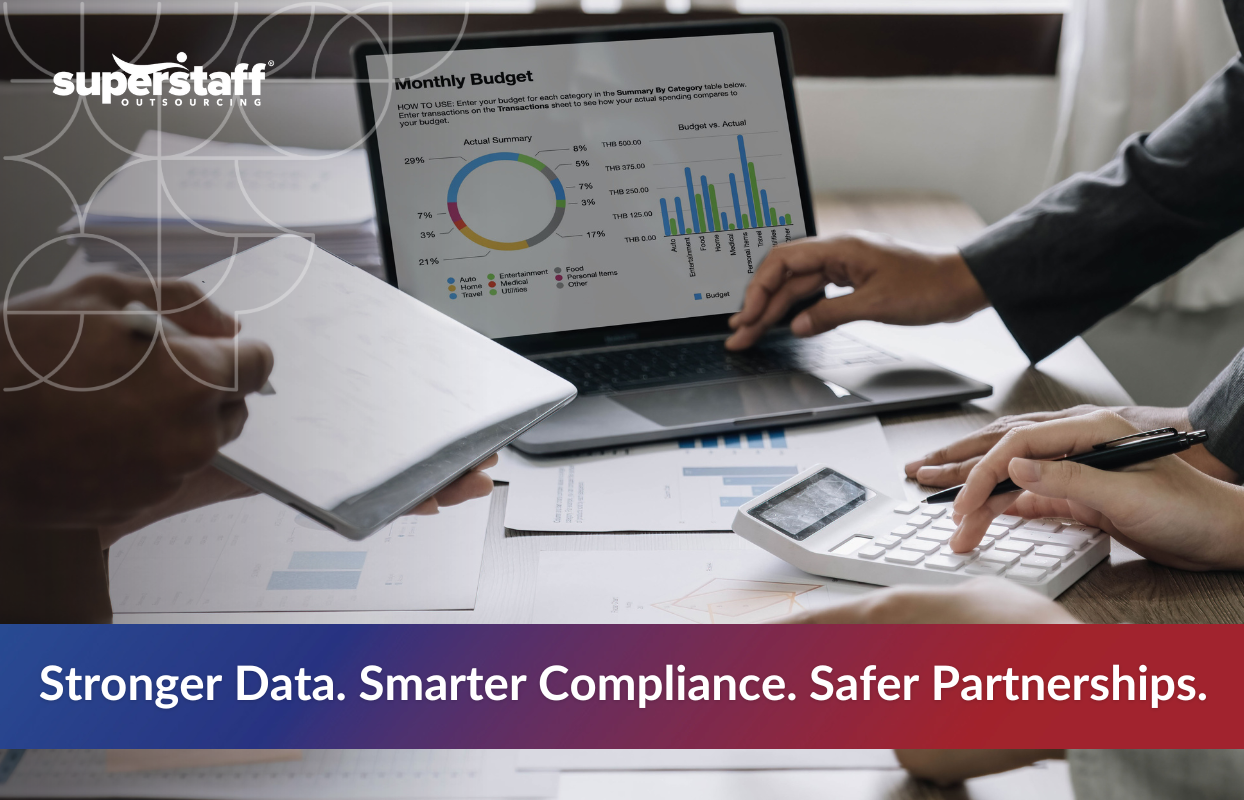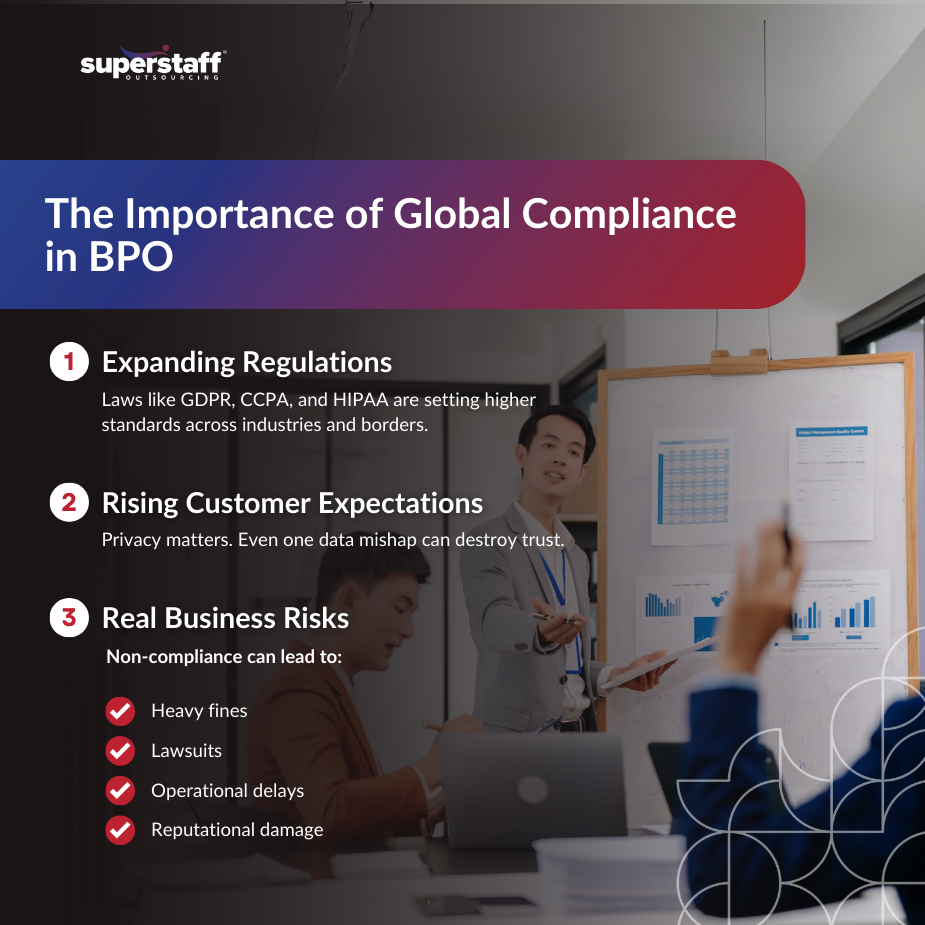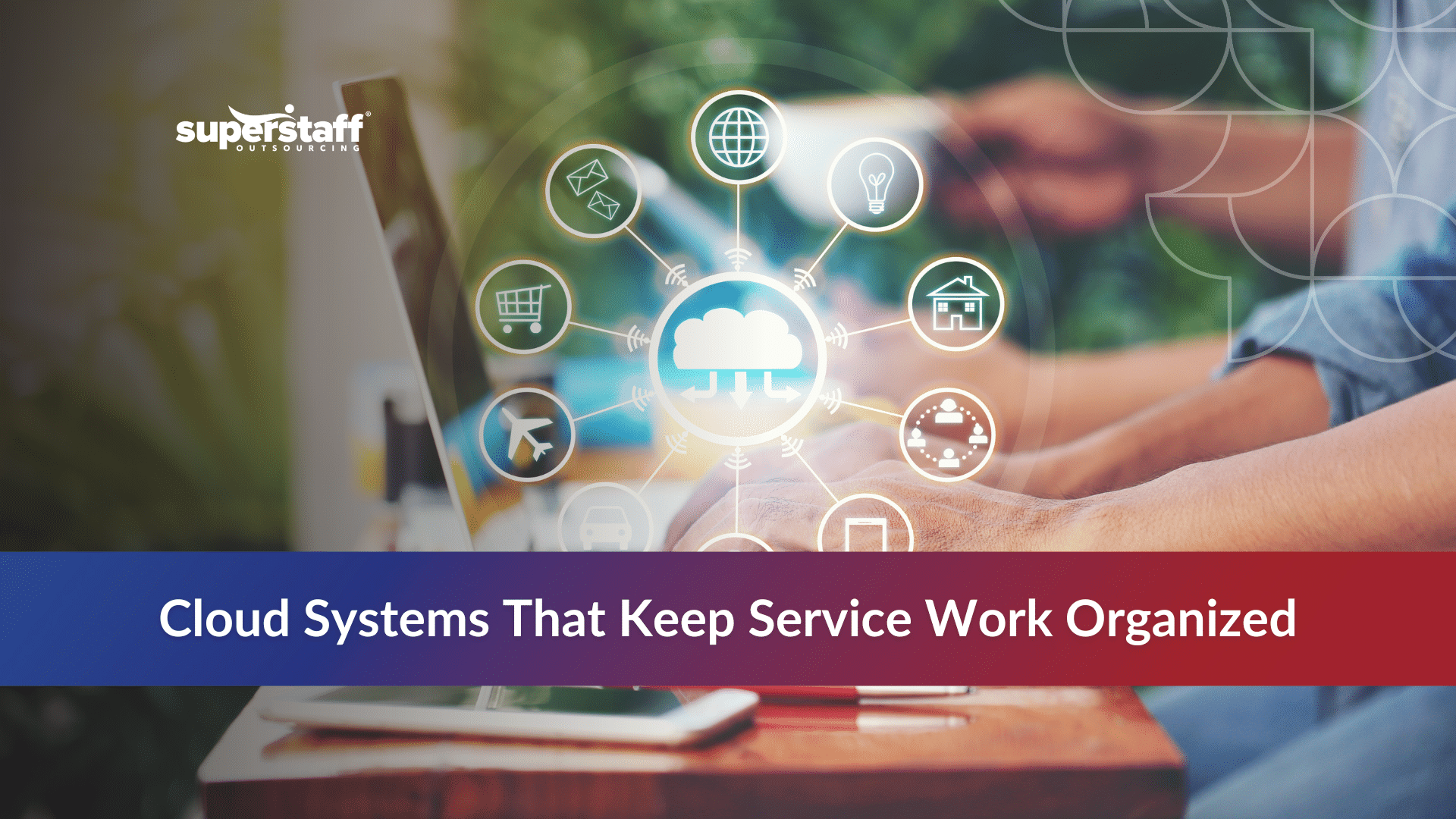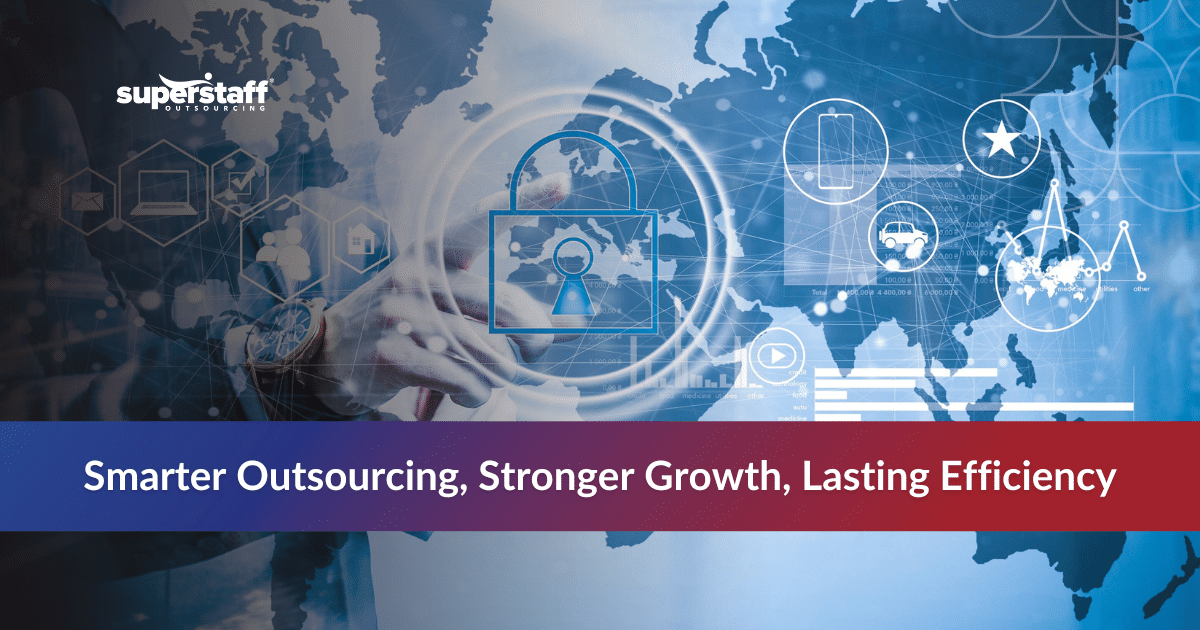
Data is one of a company’s most valuable assets—and one of its biggest responsibilities. Whether it’s customer profiles, payment details, or health records, businesses are expected to meet strict global rules that govern how data is handled, stored, and shared. One misstep can lead to hefty fines, legal trouble, and a damaged reputation that’s hard to recover from.
But with regulations growing more complex, how can companies keep up without draining their internal teams?
For many, the answer lies in business process outsourcing (BPO). As regulatory demands increase, global compliance in BPO has become a critical factor in choosing the right partner. By working with providers that prioritize compliance, companies can strengthen their data governance practices and ensure every piece of sensitive information is managed securely and responsibly.

The Importance of Global Compliance in Data Governance
Global compliance in BPO is no longer a “nice to have”—it’s a must-have. As data regulations tighten across industries and countries, companies that fail to keep up put themselves at serious risk.
Why is this such a big deal?
- Data protection regulations are multiplying worldwide. From Europe’s GDPR to California’s CCPA and the U.S. healthcare industry’s HIPAA rules, businesses face a growing list of obligations.
- Customers care about privacy. One breach or mishandled data incident can quickly erode customer trust.
- The risks of non-compliance are high. Penalties, lawsuits, operational delays, and reputational harm can all result from falling short.
Understanding the importance of data privacy in outsourcing and compliance is crucial in BPO partnerships. Even when outsourcing partners handle sensitive data, your company remains responsible for its protection. That’s why prioritizing global compliance in BPO is essential when selecting a provider.
So, what regulations should BPO providers be ready to meet?
Key Global Compliance Standards for BPO Providers
Staying compliant with data regulations is a major challenge for businesses today. In fact, 43% of companies say they struggle to keep up with global data protection laws, and the consequences for slipping up can be severe.
As compliance standards tighten, it’s crucial for BPO providers to meet these demands and protect their business. Here are the key regulations you need to know to ensure your data governance stays secure:
-
GDPR (General Data Protection Regulation)
Applies to companies processing the data of European Union residents. It requires clear consent, data minimization, and strict protection of personal information. Even companies outside the EU must comply if they serve EU customers.
-
CCPA (California Consumer Privacy Act)
Protects the personal data of California residents. It gives consumers the right to know what data is collected, request deletions, and opt out of sales. This law sets a high bar for data transparency and accountability.
-
HIPAA (Health Insurance Portability and Accountability Act)
Applies to healthcare data in the United States. It mandates the secure handling of patient information. For BPO providers offering healthcare services, HIPAA compliance is non-negotiable.
-
ISO/IEC 27001
This globally recognized standard provides a framework for building secure information management systems. Certification signals that a BPO provider has strong internal controls and a commitment to data protection.
-
Other Industry Regulations
Depending on the sector, businesses may also need to comply with rules like SOX (Sarbanes-Oxley) for financial reporting or FERPA (Family Educational Rights and Privacy Act) in education.
To maintain secure data management in BPO environments, providers must be ready to meet all relevant standards and prove their systems are up to par.
How BPO Providers Can Strengthen Data Governance
Saying your business is compliant isn’t enough. What matters is how those standards are put into action. The right BPO provider doesn’t just check boxes—they build and maintain the systems that protect your data every day.
Here’s how:
-
Privacy and Security Protocols
Top BPO providers use encryption, secure communication networks, and role-based access controls. These measures reduce the risk of data falling into the wrong hands.
-
Regular Audits and Monitoring
Routine checks ensure that privacy policies are followed consistently. Audits help identify weak spots before they lead to major issues.
-
Data Classification and Access Management
Sensitive data should be clearly identified and only accessible to authorized personnel. BPO providers set up tiered access systems to prevent misuse.
-
Incident Response and Recovery
What happens if something goes wrong? The best partners have clear plans in place to quickly respond to breaches and recover lost data without major disruptions.
A well-rounded approach to secure data management in BPO partnerships builds confidence and reduces risk on every level.
Outsourcing as a Solution for Scalable Compliance
As companies grow, so do their data responsibilities. Meeting compliance standards across multiple markets or locations can become overwhelming.
That’s where outsourcing provides a major advantage, but it’s essential to partner with a BPO provider that understands global compliance in BPO to avoid costly lawsuits, penalties, and operational disruptions.
-
Access to Expertise
Many BPO providers employ compliance specialists who understand international regulations inside and out. They stay up to date and help businesses adjust to changes.
-
Scalable Security Infrastructure
Need to add new data workflows or serve more customers? Outsourcing partners can scale their systems quickly, without sacrificing security.
-
Global Coverage
If your business operates across different countries, you need a partner who understands local laws. Global compliance in BPO ensures your business stays protected in every region where you operate.
Outsourcing is not just a temporary fix. It’s a practical, long-term solution for companies that need to grow while staying compliant with regulations.
Advantages of Outsourcing for Data Governance Beyond Compliance
While meeting regulations is crucial, the benefits of outsourcing extend further. It can also improve your overall business operations.
-
Lower Operating Costs
Building an internal compliance team can be expensive. Outsourcing allows companies to meet standards without overextending their budget.
-
More Focus on Core Activities
When a trusted partner handles your compliance needs, your internal team can focus on growth, innovation, and customer service.
-
Better Tools and Resources
Outsourcing gives you access to advanced monitoring systems, automated compliance checks, and industry-standard security platforms—without needing to buy or manage them yourself.
-
Improved Risk Management
From data breaches to outages, outsourcing partners help reduce the likelihood of costly disruptions. Their systems are designed for resilience and business continuity.
The result? Stronger data governance that helps businesses not just survive, but thrive.
Building Trust Through Secure Data and Global Compliance
Aligning with global compliance in BPO has become a business essential. Whether your company operates in healthcare, finance, retail, or another industry, following the right standards is key to protecting both your data and your reputation.
Outsourcing plays a vital role in meeting these demands. With the right partner, businesses gain access to compliance expertise, reliable processes, and the flexibility to strengthen data governance without overloading internal teams.
Ready to enhance your company’s data protection strategy?
Partner with SuperStaff. Our outsourcing solutions are built to support global compliance in BPO, reinforce secure data management, and give your business the confidence to move forward. Let’s build a stronger, safer foundation—together.






